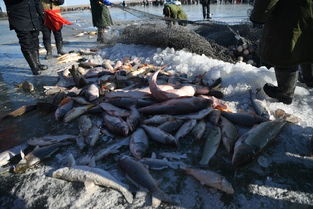Content:
Fishing is an ancient pastime that has been enjoyed by people for centuries. Whether you are looking to unwind and relax or hoping to catch the big one, fishing can be a rewarding experience. However, if you are new to the sport, it can be overwhelming to know where to start. In this article, we will provide you with some essential tips to help you play fishing like a pro.
Choose the Right Equipment
Before you start fishing, it is crucial to have the right equipment. Here are some essential items you will need:
- A rod and reel: Choose a rod and reel that is appropriate for the type of fishing you plan to do. For beginners, a lightweight spinning rod and reel are usually a good choice.
- Fishing line: Make sure you have the right fishing line for the type of fish you are targeting. Monofilament line is a popular choice for beginners.
- Lures or bait: Depending on the fish you are trying to catch, you will need the appropriate lures or bait. Live bait, artificial lures, and baitcasting are all viable options.
- Tackle box: A tackle box is a container that holds all of your fishing supplies, such as hooks, sinkers, and swivels.
Learn the Basics of Casting
One of the most important skills to master in fishing is casting. Casting involves throwing your lure or bait into the water in a way that makes it look appealing to fish. Here are some tips to help you improve your casting technique:
- Start with a gentle flick of your wrist to get the line moving.
- Practice casting in an open area with no obstacles to improve your accuracy.
- Adjust your casting technique based on the type of rod and reel you are using.
Choose the Right Location
The location you choose for fishing can significantly impact your success. Here are some tips for selecting the perfect spot:
- Research the fish you want to catch and find out where they are most abundant.
- Look for areas with good water flow, such as rivers or streams.
- Consider the time of day and season when choosing your location. Fish are more active during certain times and seasons.
Understand Fish Behavior

To catch fish, you need to understand their behavior. Here are some tips to help you get a better grasp of fish behavior:
- Learn about the feeding habits of the fish you are targeting.
- Pay attention to the weather and water conditions, as they can affect fish behavior.
- Be patient and observe the water for signs of fish activity, such as splashes or bubbles.
Use the Right Bait and Lures
The type of bait or lure you use can make a big difference in your fishing success. Here are some tips for selecting the right bait and lure:
- Live bait, such as worms or minnows, can be very effective for catching fish.
- Artificial lures, such as spinners or crankbaits, can be used to mimic the movement of real prey.
- Experiment with different baits and lures to see what works best for the fish you are targeting.
Practice Catch and Release
As a beginner, it is essential to practice catch and release to ensure the sustainability of fish populations. Here are some tips for practicing catch and release:
- Use a dehooking tool to gently remove the hook from the fish's mouth.
- Avoid handling the fish too much, as this can stress them out.
- If possible, use a fisherman's net to help you safely release the fish back into the water.
Stay Safe
Fishing can be a fun and rewarding activity, but it is important to stay safe while you are out on the water. Here are some safety tips to keep in mind:
- Always wear a life jacket, especially if you are fishing from a boat.
- Be aware of your surroundings and the weather conditions.
- Stay hydrated and bring along snacks and water.
In conclusion, fishing can be a challenging sport for beginners, but with the right equipment, techniques, and knowledge, you can improve your chances of success. By following these tips, you will be well on your way to becoming a skilled angler. Happy fishing!












